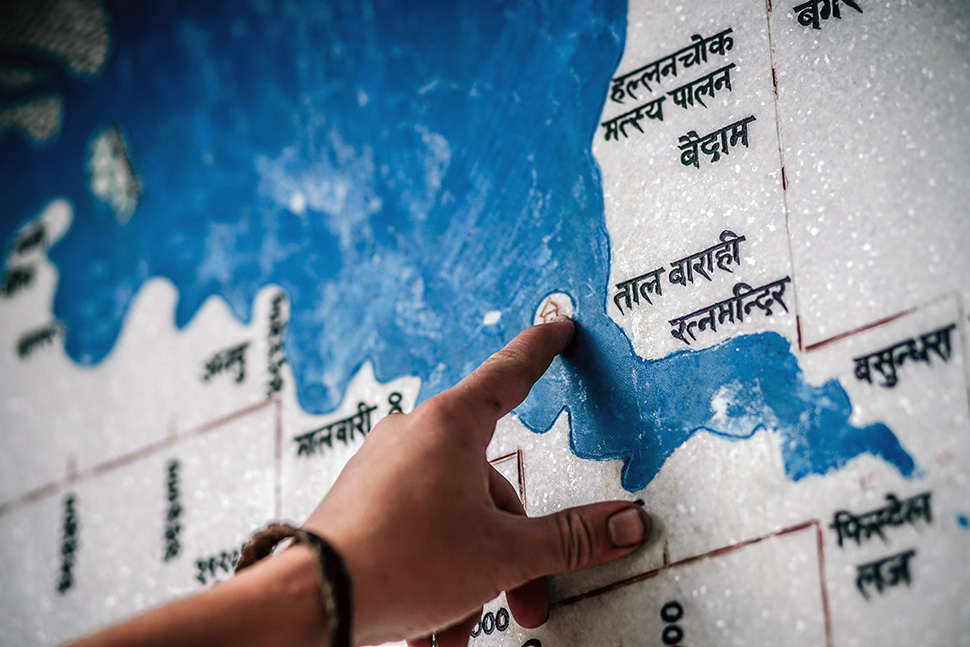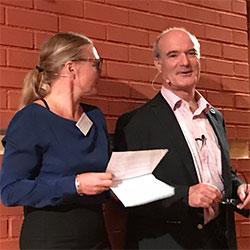
The uneven geography of migration
In the end of 2017, a project development process was initiated between Mistra Urban Futurres’ local interaction platforms in Gothenburg and Skåne, together with both academic and public partners. The process was based in the understanding of migration – both international and internal – as a continuous movement and un inevitable part of ongoing societal processes of globalisation and urbanization.
A general purpose of the project development process was to promote dialogue and cooperation around the strategic questions, the practical solutions and the political dilemmas that arise as a result of migration. As basis for the process three themes were identified:
1. Changed perspectives and approaches in governance and planning in relation to migration
2. Migration as a part of urban-rural development processes
3. Spatial transformation as a result of migration processes
The project The uneven geography of migration covers all the above mentioned themes and focus more specifically at effects of the Swedish settlement act. The starting point is that inclusion of newly arrived migrants is a complex issue, depending on both political, institutional, spatial and structural causes. At the same time, spatial studies where the uneven geography of migration is discussed at local/municipal as well as regional level is missing. There is also a lack of studies where more qualitative perspectives can be linked to more quantitative and statistically significant connections between integration and labour market that already exists.
Research questions
From 1 Mars 2016, designated municipalities must be able to arrange housing for newly arrived migrants who has been granted residence permit (Reception for Settlement act 2016:38). It is the County administrative board that decides the number for the municipalities, and who has the overall responsibility for the regional coordination of the work with planning, organizing and managing the actions for arranging housing for newly arrived migrants. The period from designation to establishment must not exceed two month. The ambition is that the law will provide a more fair distribution of newly arrived migrants over Sweden, and also create better conditions for people to be integrated in the society and at the labor market.
The purpose of the two sub studies in project is to examine how three municipalities in Region Västra Götaland has handled their responsibility, and which the consequences are of the new law, regarding inclusion of newly arrived migrants. Is it reasonable to conclude that the law has led to increased justice?
The study aims to overall three general research questions:
1. What are the political and institutional conditions for the municipalities when it comes to arranging housing for newly arrived migrants within two months, in accordance with the Reception for Settlement Act?
2. What are the spatial conditions for these municipalities, regarding inclusion of newly arrived migrants in accordance with the Reception for Settlement Act?
3. What are the experiences of newly arrived migrants from being assigned housing in these municipalities? How do they resonate regarding staying or moving?
Expected results
Altogether, the project will result in
1. a review and spatial analysis of the conditions for two municipalities with declining populations, and a metropolitan municipality characterized by population growth, regarding the possibilities and capacity of these municipalities to spatially include new arrived migrants, in accordance with the Reception for Settlement Act 2016: 38,
2. a brief international literature review covering spatial and geographical aspects of migration,
3. initiative for a larger research application to identify cross-diciplinary research questions together with relevant societal actors and other academic institutions on the uneven geography of migration.
Background
During 2015 Stockholm, Göteborg and Malmö gathered around common knowledge gaps on urban development. This collaboration was framed as The Knowledge Agenda on Sustainable Development, as a basis for common research-political argumentation and for common actions and priorities between the three cities. One of four central societal trends formulated was “Urbanisation, migration and segragation”. Taking starting point in the Knowledge Agenda, a project development process around migration and urban development was initiated. The project The uneven geography of migration is one result of this process.
The project members are collaborating with the Working group for mapping of refugees’ migrant pattern, with representatives from Region Västra Götaand, The County Administrative Board of Västra Götaland, Skaraborg Local Authorities, Fyrbodal Municipal Association, The Göteborg Region Association of Local Authorities (GR) and the City of Gothenburg. The project is linked to Mistra Urban Futures’ international comparative project
Migration and Sustainable Urban Development.







